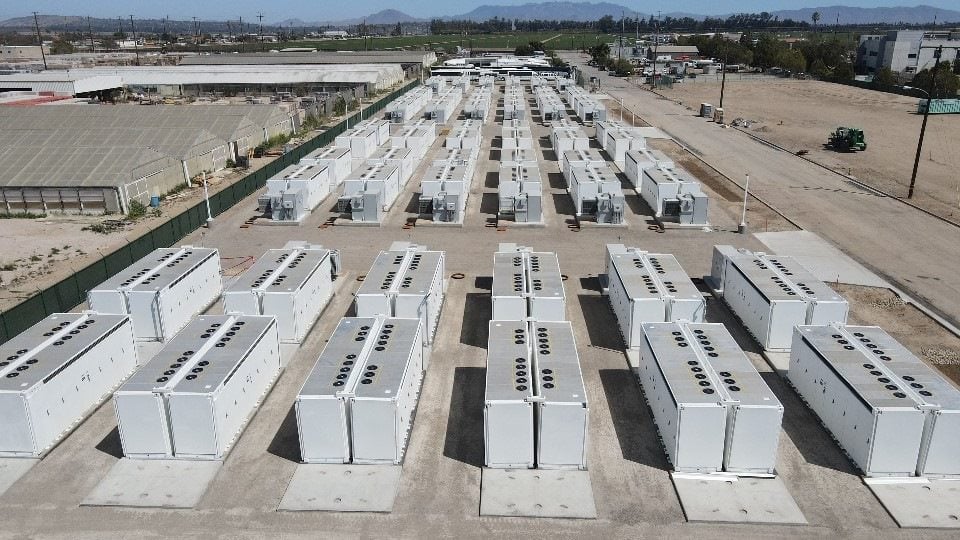
With the price of BESS continuing to fall, there is an ongoing discussion in the industry around the limitations of manufacturer warranties and how analytics can unlock untapped revenues.
The topic came up during discussions we had with battery energy storage system (BESS) project operators, optimisers, system integrators and analytics firms at last month’s Energy Storage Summit EU in London.
Enjoy 12 months of exclusive analysis
- Regular insight and analysis of the industry’s biggest developments
- In-depth interviews with the industry’s leading figures
- Annual digital subscription to the PV Tech Power journal
- Discounts on Solar Media’s portfolio of events, in-person and virtual
A European operator with hundreds of megawatts of operational capacity, speaking anonymously, told us there were now discussions around cycle limits.
“Does it make sense to have cycle limits? Could we just cycle as hard as possible and buy new cells?” they said, pointing to the continuing declines in BESS prices.
“We’ve treated these as 15-year assets, but maybe that needs a rethink. The cycle limit is one of the biggest caps on revenue.”
Warranties
While most BESS manufacturers and system integrators have dropped daily cycle limits, lifetime warranty cycle limits often average out to 1.8-2 cycles per day over the year, sometimes more, sometimes less.
Philip Goethe, senior business development manager for optimiser Suena, said this approach could work for more merchant opportunities but such an approach would turn off a lot of institutional investors.
“Some investors are looking for a 20-year sustainable investment with secured IRR, and this approach is not how you would get those investors convinced,” Goethe said, speaking to us at the Summit.
“It could work for making fast money. For each cycle that goes above 1.8/2 per day, you earn less and less per cycle because it degrades the lifetime of the batteries (and the incremental profit decreases). On some days, we have huge spreads in the intraday market in Germany, so on those days it might make sense to do a lot of cycling, less so in winter. You could do three cycles a day based on that, maybe for 20-30 days per year.”
“It’s all about working out the cost of one cycle and whether the additional revenues make sense.”
System integrators we spoke to at the event said their warranties have become more flexible, which operators and optimisers agreed with, but they are still clearly seen as a limitation.
Charlotte Johnson, general manager for infrastructure flex at Kraken, the tech and asset management platform of UK-headquartered utility and IPP Octopus Group, also pointed to warranties limiting performance.
Posting on LinkedIn after the Summit finished, she said: “Most OEMs and PPCs (power plant controllers) clip BESS capacity to manage warranty conditions, and this again limits MWh being used. Better SoC monitoring and management at extreme ends of SoC would actually help tapping into that volume.”
Analytics to unlock untapped revenues as focus shifts to performance
Analytics firm Accure Battery Intelligence recently contributed a guest paper for our quarterly journal PV Tech Power on the topic, discussing the limitations of BESS warranties and how data analytics can help the industry to formulate better ones and maximise asset performance.
Suena’s Goethe went into detail on how warranties may begin to look outdated as the industry begins to understand performance better.
“Analytics will become a super hot topic soon. People will realise their batteries will outperform the warranties, at least from the cases we see. Warranties always take the worst case scenario by their nature,” he said.
“Right now, if the analytics firms can predict state-of-charge and state-of-health better than the warranty, you would still trade within the warranty. But once the warranty becomes less important—either because the BESS investment is paid off, the warranty ends, or the performance is clearly better than the warranty—at that point, owners will take the third-party estimate and look to get the most out of their asset.”
This speaks to a shift within the analytics space itself, with Tamara Salas, business development manager for another German analytics firm, Twaice, telling us: “There is a definite shift in the analytics space from fire safety as the main topic towards performance and lifecycle. Fire safety is more of a given now, and it’s still part of the core business, but the conversations on analytics are definitely now more geared towards optimising long-term performance.”
Johnson said the same about the industry as a whole: “Although BESS safety remains crucial, priorities are shifting toward performance & availability—maximising revenue is the focus.”

